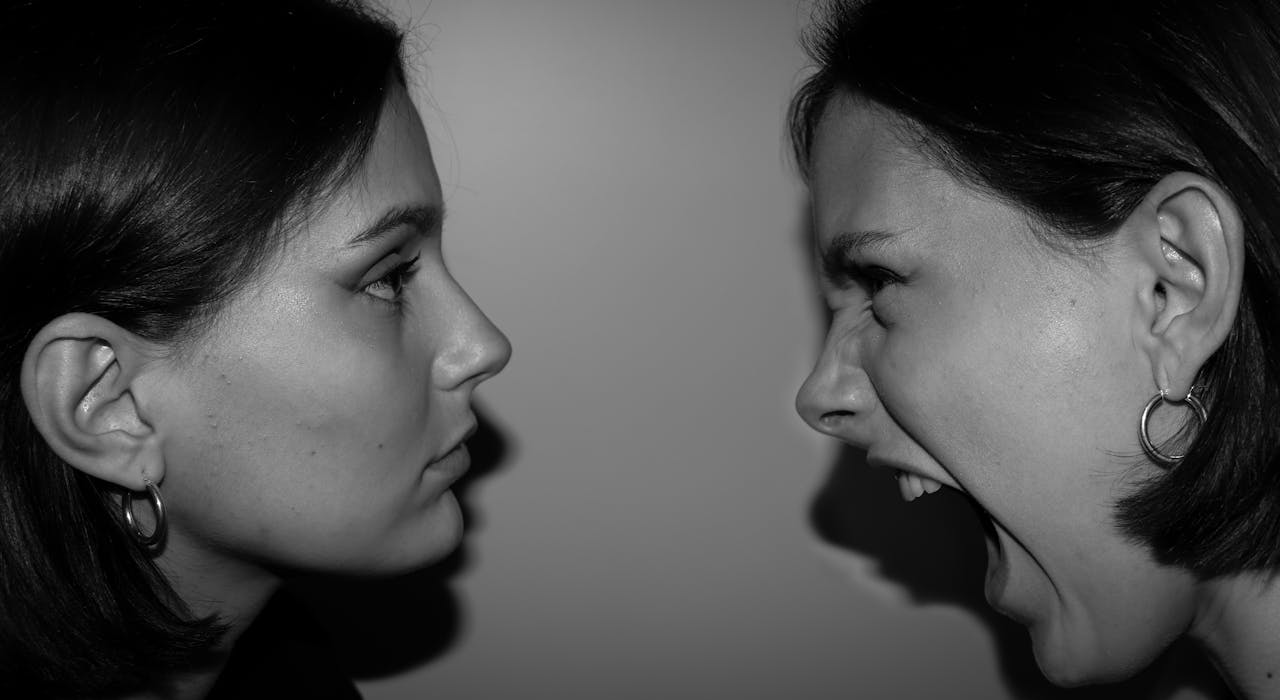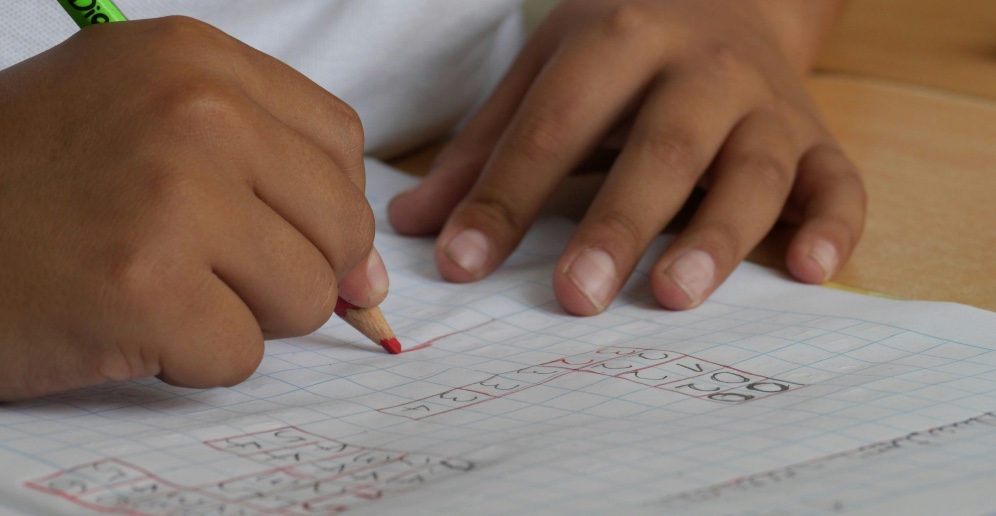I had so much pain stuck in my chest and throat. Cancelled screams. Unsaid truths.
Every meeting where I stayed quiet, every time I swallowed my words to seem reasonable, every time I hoped that portraying myself a certain way might stop my children from being harmed—those moments didn’t disappear. They got stuck. I stopped breathing properly. I couldn’t take a deep breath and feel any better. I stopped trusting myself, and all those unsaid words bounced around inside me like angry birds smacking into the walls of my chest. My chest felt like pulverised meat.
Complicity
That’s the thing about silence in the face of harm: it doesn’t neutralise the danger. It just makes you complicit in it.
Not because you wanted to be. But because survival sometimes requires self-erasure. And in the world of education—especially for families like mine, families with disabled and neurodivergent children—you’re forced to make that trade again and again: be calm, polite, engage in small talk. And don’t cry, accuse, or show how scared you are.
They are my children.
Neurodivergence and risk
Neurodivergent people—especially those with autism, ADHD, and related profiles—often have a heightened ability to detect patterns, inconsistencies, and subtle environmental cues. This pattern sensitivity isn’t just intellectual; it’s embodied. Many of us notice shifts in tone, routine, or atmosphere before others do, and we’re often the first to sense when something isn’t safe, fair, or aligned.
In systems that rely on unspoken rules and social smoothing, this can make us seem “intense” or “overreactive”—but in truth, we are often picking up on real risks that others have learned to ignore. This kind of attunement is a survival strategy, shaped through years of navigating unpredictability. It makes neurodivergent people uniquely capable of identifying harm early, noticing structural failures, and challenging false narratives that others accept as normal.
Your brain is on fire
And while you’re making yourself smaller and smaller, your brain is on fire—alert, alert, this isn’t safe, someone needs to intervene. But if you say that out loud, you’ll be dismissed as unstable, dramatic, uncooperative. If you stay silent, your child keeps getting hurt.
There is no way to be right. Your child loses either way.
And the inflammation grows, as meetings catch you on fire. The moral indignation like a grater in your chest, slicing your delicate skin.
Double jeopardy
That’s what double jeopardy feels like in a system that punishes both expression and restraint. The distress doesn’t go away—it just settles into your body. Into your lungs, your muscles, your blood sugar. Into every breath you hold and every night you can’t sleep. Every night you wake, like you’re being hunted, planning a new email at 3 a.m.
It hurts to keep secrets. And it hurts more when the secret is that your child is being harmed and no one will believe you.
A prison
If you think school is harming him, why do you want him to be here?
Something a staff member said to me. I don’t want my children to be here, my lawyer just told me not to skip the country and that judges rarely find that it’s in the best interest to remove children from school and my ex won’t discuss removing them from school, so we’re trapped here and every time I’m in the parking lot I fantasise about driving away and never coming back. This place is like a prison.
Truth is an escape route
What I’ve learned is that telling the truth—even when it’s messy, even when it’s painful—is the only way to get that poison out. Writing our story, sharing it with others, letting it live outside my chest instead of ricocheting inside—it’s helped, considerably. It breaks the isolation. It connects me with others who’ve endured this same prison of consciousness.
And when you find people who’ve been through it—when you tell your stories, do fun things together, and laugh a lot—it rewires something deep in your chest. It reminds your body that safety is possible.
Healing my body
I’m also trying to heal my body from diabetes. The injustice of it—the betrayal—is that after everything, my body is the one giving up. The stress, the silence, the contortions—it’s taken a toll. But every walk I take, every wise food choice I make, every moment of deep rest I allow myself—that is a form of healing. That is me choosing life. That is me refusing to let institutional harm be the end of me.
Moral injury
And I want to say this too: I still have empathy for the staff.
Not in the way that excuses anything. But in the way that sees their suffering, too. Because complicity is its own kind of poison. The educators who hurt my children, who enforced unjust policies, who sat across from me and said refused while I pleaded for safety—they are choking on it, every day. They can’t say sorry or acknowledge what they’ve done. And that must be a sour breakfast. That must curdle in the throat like something caustic.
Some of them may be too far gone. But I think others are just trying to survive their own moral injury. Trapped in a system that punishes reflection and rewards denial, they have silenced themselves. And the longer they stay silent, the harder it becomes to speak.
That silence is rotting them from the inside.
Another way
But sometimes, when justice fails us—and it does, spectacularly—we are called to imagine something else. Not revenge. Not vindication. But repair.
I once heard the story of a program that brings together people who have survived sexual violence and people who have committed similar crimes—not the person who harmed them, but someone who has caused that kind of harm. The meetings are careful, voluntary, deeply supported. At first, I was shocked. But then I listened. And what I heard wasn’t forgiveness. It was something rawer, and maybe more sacred: people telling the truth in rooms where the truth is almost never spoken. Victims reclaiming the power to name what happened. Offenders facing the human cost of their choices, without excuses. No one pretending it didn’t matter.
That stayed with me.
Speaking truth
I will not rot. I will not starve myself of truth to make anyone else comfortable, anymore. We have paid enough.
Now, we heal. Not by waiting for justice from institutions that were never designed to hold people like us with tenderness or truth—but by building a different kind of justice. The kind rooted in witness, in storytelling, in survival. The kind that doesn’t require permission.
Telling thousands of people is a kind of justice—a way of righting/writing the wrong into the public record, refusing silence, and reclaiming the truth that institutions tried to bury. It’s letting me breathe again.
-
Looking in the mirror is hard: maternal rage and institutional cowardice
I searched for literature that affirms what I know in my body—that maternal rage can be righteous, grounded, and deeply linked to the betrayal of public institutions. But what I found instead was an avalanche of studies examining how maternal anger harms children.…
Writing into the void
And more of you are writing into the void.
In “Reclaiming the Language of Support: The Quiet Harm of Teacher-Led Exclusion” (June 26, 2025), Wren exposes how common educational phrases—like “fostering independence,” “the dignity of failure,” “presume competence,” and “building resilience”—are often used to justify the denial of support to disabled students. Though these terms sound progressive, they frequently mask ableist practices and uphold exclusion.
Wren shows how these ideas, when used to rationalise withholding accommodations, become tools of harm rather than empowerment. Real dignity, competence, and resilience are built through access, scaffolding, and interdependence—not through struggle masquerading as strength.
She critiques a professional development industry that prioritises palatability over justice, and ends with a truth many of us are living: it’s not the children who need to be fixed—it’s the system.
Wren, I see you. Thank you for giving me what no educator in that building ever did: confirmation that what happened wasn’t okay. That all the polished language and professional tone couldn’t hide the harm. Your words met me in the place where I thought I was alone.
This is how we build justice—not through institutional permission, but through shared truth, fierce solidarity, and the refusal to stay silent. We are writing it into existence, together.
How do we heal
This piece was written in response to something that stopped me mid-scroll: Kim Block’s post about healing after harm. She spoke, with honesty and strength, to the question I’ve been circling for months: How do we move through something no one will ever apologise for?
Drawing from her criminology background and lived experience as a parent and education assistant, Kim explains that healing rarely comes from the systems that caused the harm—especially when schools refuse to apologise or acknowledge wrongdoing. Healing, she says, becomes the responsibility of those harmed, and it’s often nonlinear, messy, and deeply personal.
She offers practical strategies for survival while still inside the school system: finding a community, prioritising self-care, harnessing emotions like anger for action, and accessing low-cost therapy. More than anything, she insists on the power of hope. Through quotes, personal stories, and vivid memories—like the mustard seed a beloved professor once gave her—she affirms that healing is possible, even when it’s hard to see. Her message is clear: you are not alone, and it’s worth the risk to hope again.
Her words reminded me that healing doesn’t wait for permission, and it rarely comes from the systems that caused the injury. Instead, it begins with truth-telling, community, and the slow, defiant act of choosing life anyway. Thanks to Kim, Wren, and everyone else writing their way back from pain.








